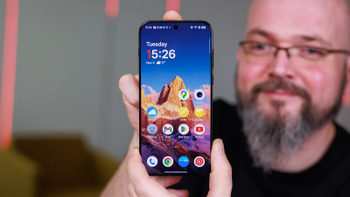Analyst says T-Mobile-Sprint merger could be doomed

Almost a year ago, T-Mobile announced that it would merge with Sprint. The $26.5 billion deal has yet to close and awaits final regulatory approval from the FCC and the Department of Justice (DOJ). Twice, the FCC had to stop the clock on its legally mandated 180 day review period. One time it was because T-Mobile revised some of its previous filings, and the other time was due to the government shut down.
Those against the deal point out that it will reduce the number of major wireless carriers in the states to three from four. This group fears higher wireless pricing because of the reduced competition, and worries about jobs getting cut as the two firms merge. Meanwhile, T-Mobile says that the merged company will add jobs from day one. Both T-Mobile and Sprint say that the merger is needed to keep America competitive in the new global 5G economy. In addition, one could make the argument that a merged T-Mobile-Sprint would be even greater competition to Verizon and AT&T, thus preventing the two largest carriers from raising their prices.
The deal has turned political with approval of the deal seen as a "Republican" move in favor of big business. Several states are reportedly considering filing an antitrust suit in federal court to block the merger. Speaking of politics, T-Mobile was criticized earlier this year when it was discovered that the company spent $195,000 for rooms and services at the Trump International Hotel in Washington D.C. The optics were not good for T-Mobile because it appeared as though the carrier had its executives stay at the hotel only to curry favor with the president so that he wouldn't be inclined to block the deal.
Moffett believes that the DOJ will block the deal anyway. The analyst says that if the agency follows its own guidelines, it would be forced to prevent the merger from taking place. T-Mobile does not have a good history in closing transactions. Back in 2014, Sprint and T-Mobile floated the idea of a merger before both the DOJ and FCC and were basically shot down by the regulatory agencies before a deal was even announced. Four years before that, AT&T announced a $39 billion purchase of T-Mobile. Pressure from the FCC and DOJ forced AT&T to back away from the transaction. As a result, AT&T gave T-Mobile $3 billion, a seven-year 3G roaming deal, and 128 markets AWS markets. Some mark the beginning of T-Mobile's ascension back to this agreement that it made with AT&T.
Follow us on Google News










![A new Android bug is making it impossible to install new apps. Are you affected? [UPDATE]](https://m-cdn.phonearena.com/images/article/176703-wide-two_350/A-new-Android-bug-is-making-it-impossible-to-install-new-apps.-Are-you-affected-UPDATE.webp)

Things that are NOT allowed:
To help keep our community safe and free from spam, we apply temporary limits to newly created accounts: